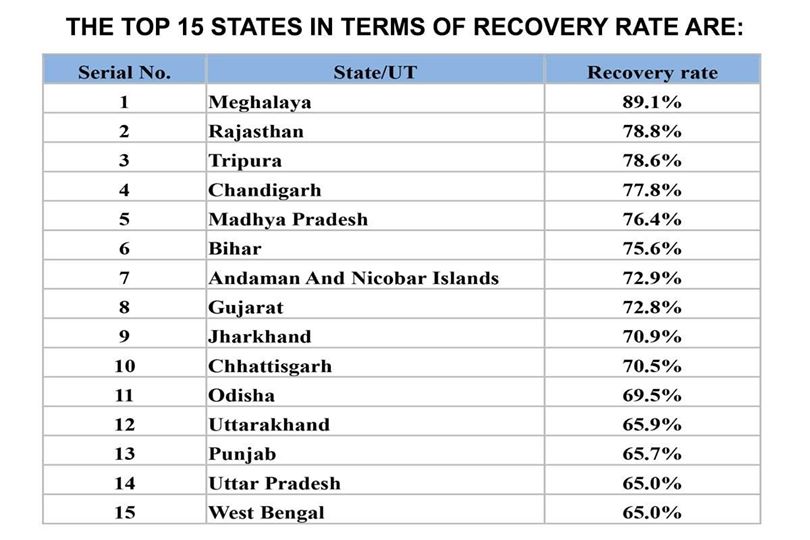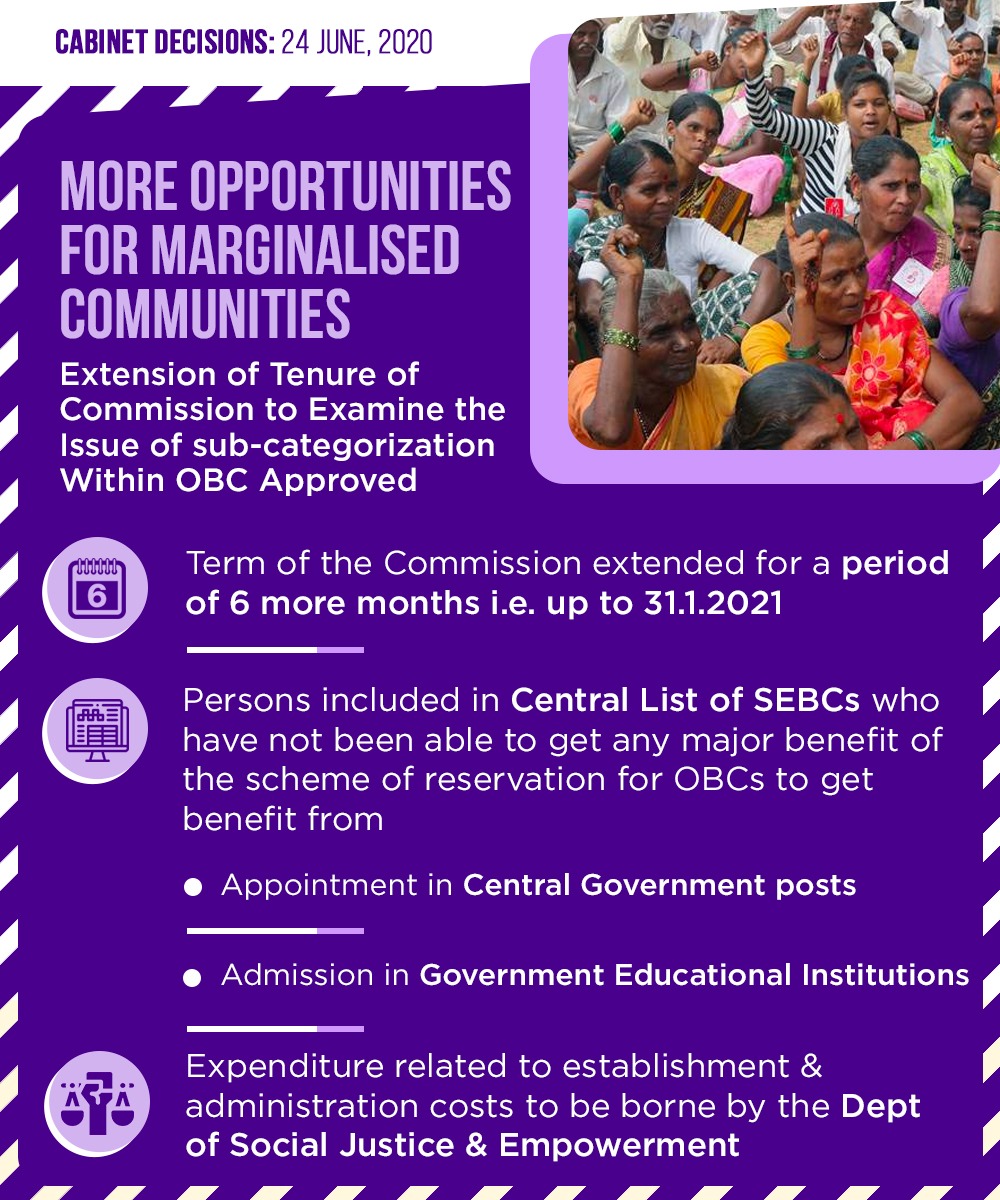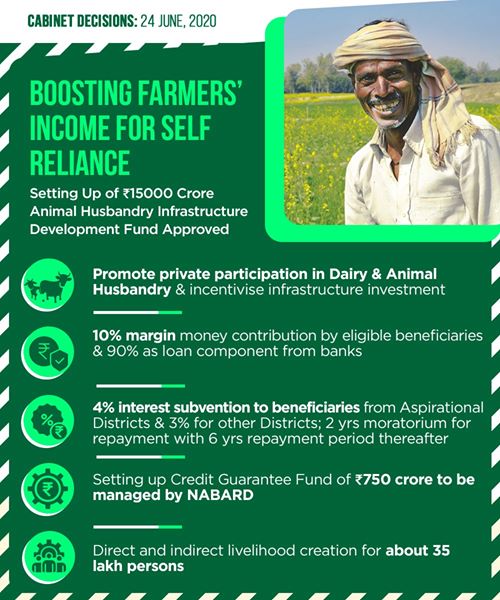1. #Evangelism Through Bureaucracy Is The New Silent 'Breaking India' Force: Sooner Action Is Taken, The Better. : Jun 29, 2020 : Aravindan Neelakandan - / - / - / # When bureaucrats turn into radical proselytisers, then there is a very real danger of religious conversion becoming the cost of availing public services. - / - / - 2. ##Has social service become a way of Conversion for the Missionary mafia? - / - / - / ## As we have seen, many countries around the world are hit by these missionary activities. Providing help and service in the time of distress is always welcome. Temples and Gurudwaras provide food and shelter to needy without asking their religion or trying to convert them. Why can’t churches do so? Why do missionaries need to convert people for providing help and service? Can social service not be done without conversion? / / -
# OPINION : Monday, June 29, 2020. 7:59. PM. : 2209.
1. #Evangelism Through Bureaucracy Is The New Silent 'Breaking India' Force: Sooner Action Is Taken, The Better. : Jun 29, 2020 : Aravindan Neelakandan : Swarajya : Media Report.
*Woman holding a Christian cross. Representative image (Dan Kitwood/Getty Images)
Snapshot :
#When bureaucrats turn into radical proselytisers, then there is a very real danger of religious conversion becoming the cost of availing public services.
Something strange and disturbing has been caught in Indian social media.
‘Mission Kaali’ is a social media handle which has been monitoring and documenting how evangelist individuals and organisations violate laws in India and engage in outright abuse of human rights.
One aspect of this phenomenon this handle has been documenting is how powerful bureaucrats in India have been misusing their positions of power, as evangelists, and for evangelists.
Recently, Mission Kaali has exposed one such shocking abuse of power.
Mr. D.P. Haokip is a senior official in the Indian Revenue Service (IRS).
In a talk obviously given in an evangelist convention Haokip reveals that he is also an evangelist even while on duty.
He claims that he summoned Rahul Dravid, former captain of Indian cricket team to his office and did proselytising manoeuvres for an hour, preaching him Bible.
An IRS top-level bureaucrat can make the life of any of his targets miserable. Every one knows the power of such a post.
Haokip reveals his evangelist zeal even in his visiting card which contains a verse from Gospel according to John [verse: 3:16].
Mission Kaali rightly points out that the very same chapter later condemns all non-believers who do not ritually drink the blood of Jesus to eternal hell (3:36).
Clearly the visiting card reveals both the offending and threatening implications of his mindset to the non-believers who refuse to listen to his fundamentalist evangelist ramblings.
No wonder a leading cricketer and a Hindu had to sit for an hour listening to his Bible preaching. If this is the case with a famous personality, then one can think about the kind of abuse his ordinary victims should have undergone.
Earlier, the handle had shown how a United States politician, then a Senator, bragged in a meeting how Indian ambassador Sen, ‘a humble and meek’ person, felt guilty about being not able to do much to send Christian proselytisers into India and then personally phoned the Senator, apologised to him, and said that he could not sleep all night over the problem.
Sen then added, according to the Senator, that he had found a solution which was that he would personally sign the applications and establish a pattern of dealing that would get around Indian bureaucracy.
This should likely be referring to IFS bureaucrat Ronen Sen, who was ambassador to the United States, during UPA-I.
Either the US Senator was exaggerating and grand-stating or the Indian ambassador to the US probably wanted to show Sonia Gandhi in Delhi how loyal he was to her brand of secularism.
Anyhow, the claim by Senator is in public realm and there has been no denial (at least as far as this writer knows) from ex-ambassador Ronen Sen.
If the public claims made by the US Senator are true, then we have a classic example of a top ranking diplomat going out his way to please and facilitate proselytising agents of a foreign country to operate in India.
*The same is also true about Uma Shankar IAS.
## Considered as one of the most straight forward anti-corruption bureaucrats, his evangelist zeal led him to become the target of online jokes and memes.
Some who have observed him think that the pressure from politicians made him the victim of evangelism.
Whatever be the reason, today he has become a preacher of radical Christianity.
Apart from citing Bible for capital punishment to homosexuals, he even preaches that those who keep any portrait, even that supposedly depicting Jesus, should be canned.
At times he also arouses end-times fear mongering derived from apocalyptic visions from the Christian sacred book.
In yet another more dangerous revelation a Jesuit clergy, Joe Arun, director of LIBA (Loyola Institute of Business Administration) claimed that when the state government of Tamil Nadu asked him to be one of the mentors in the board for revising the social science syllabus from first standard to 12th standard, he introduced Jesuit ideology into the syllabus.
He states:
If you go today and see first standard students’ social science note book there is plenty of Jesuit ideologies injected into it and nobody knows
So, the evangelism is happening at all levels of the Indian state, targeting not only immediate targets but also generations.
All these bring us to the larger problem.
Today, the evangelist crusade against Hinduism and hence all native spiritual traditions of India, has discovered a new strategy – to use the powerful Indian Civil Services for its cause.
What Mission Kaali has brought out is most probably only a tip of the iceberg.
From loan sanction to building approval, evangelists at all levels of bureaucracy can play havoc on Hindus.
Income tax raids can become the evangelist inquisitions for the non-believers.
Ration cards can become the rapiers of crusaders.
What can a poor Hindu family do when it is denied of a ration card except perhaps to convert or suffer in silence?
Perhaps during the decade of UPA rule, such bureaucratic evangelism became well-established in the system. We still do not know how many bureaucrats from top and middle level are sharing their success stories of evangelist crusades against Hindus (particularly Scheduled Communities and tribes) in unrecorded conventions.
It is time Hindus recognise as a society the existential danger posed by this bureaucratic evangelist crusade.
Ideally, the people and community leaders of various Hindu traditions should force the government to create bodies, both at the local and national level, to monitor whether the bureaucrats of other religions are misusing their positions of power to abuse the autochthonous traditions of Indian communities and tribes.
In this, more responsibility vests with we, the Hindus of India. We need to compel our law-makers to issue white papers for every constituency and then every Hindu majority state, as to whether the unethical bureaucratic evangelist activities happened in the constituency and state.
Irrespective of whether actions are taken against the unethical bureaucrats, at least as the significant first step they should be named and shamed.
Mission Kaali and quite a few social media handles have done a remarkable service of monitoring and recording such gross unethical abuse of bureaucratic power in India – perhaps an unwritten and unofficially implemented policy under UPA. But given the epidemic nature of this abuse and its potentially violent and dangerous consequences for the nation, what we need immediately is a national level intervention and detoxification.
This then is in fact true secular humanism fighting against predatory religious fundamentalism.
==============================================================
===================================================================
2. ##Has social service become a way of Conversion for the Missionary mafia? : 27 June, 2020 : prabhasshakya : Opindia : Media Report.
## As we have seen, many countries around the world are hit by these missionary activities. Providing help and service in the time of distress is always welcome. Temples and Gurudwaras provide food and shelter to needy without asking their religion or trying to convert them. Why can’t churches do so? Why do missionaries need to convert people for providing help and service? Can social service not be done without conversion?
Social service or helping a helpless person is an act that has no connection with any particular religion or community. Whoever wants to serve the society in a selfless spirit whatever their religion may be, can do it. But in the last few years, it is seen that social service is also becoming a tactic to convert people. Specifically, the Christian missionaries are front runners in this practice.
They use this method in two ways. The first method is to project their religion as the saviour of poor and helpless in order to convince them for conversion and secondly they provide financial help to the needy. They use social service as a cover to hide their fraudulent immoral converting practices. It’s not a sudden thing that Christian missionaries go to an area and start providing service and help. This is a very well planned practice.
First, a region is selected where most of the people are backward and poor, where majority belongs to SCs and STs, as it is easy for them to incite these people against their own religion. Then these “Jesus Salesmen” start to sell their religion. Providing financial assistance is not a bad thing at all but when it is done to convert people, it becomes wrong. It becomes a false allurement given to them to get them converted. This is immoral.
Religious conversion is one’s personal matter but only if one’s decision to get converted is only due to his attraction towards the religion or it’s a religious philosophy. If his decision is shaped by his poor financial condition or he aims to achieve a better living standard by conversion, It becomes barter through religion rather than ‘freedom to choose religion’ or ‘Social Service’. We have hundreds of examples in which missionaries and organizations tried to take advantage of the helplessness of the people and to convert them by preying them into the false trap of social service.
Pandita Ramabai, a Brahman converted to Christianity after being widowed at an early age, started an organisation ‘Shanti Sadan’ in Mumbai in 1889. It was a school for widows. It was found that she carried out proselytisation in that school. She is called Social Reformer by the feminists. During the 1896 famine in Maharashtra, she housed a few thousand orphan girls and widows. They were later baptized(preached Christianity) and converted to Christianity. Proselytising during the time of natural calamity is well-known missionary activity. Ramabai was probably the first missionary in India to apply this tactic successfully.
Christian Missionaries blackmail vulnerable people to choose between being able to follow their traditions and being able to feed their family. In desperate times, many people convert. During any deep problem in life, people become more religious. At this time vulnerable are preached about Jesus. They are given financial aid also, as the evangelical army has multi-billion dollar resources.
During the Kerala floods in 2018, a Christian preacher Lazarus Mohan blamed Hindu rituals (mainly Moorthipooja) responsible for the floods in Kerala. Attacking the traditions of others and praising Jesus as a sole saviour is a well-nourished tool, used by missionaries to convert people when they are in deep distress and hoping for any divine help.
Pointing out the helplessness of other religions, Christian missionaries stress on Jesus and Christianity. Missionaries were busy in selling Jesus during Nepal Earthquakes in 2015 too.
In December 2004, a deadly Tsunami broke out in the Indian Ocean, near Sumatra. Over 2,30,000 people lost lives in it across 14 countries. In India more than 18,000 people lost lives, above 8000 lives were lost in TamilNadu. Christian missionaries use the immense human tragedy for their advantage. This Tsunami also brought an opportunity for them. In Indonesia, western Christian groups reached for proselytization. Local Muslims opposed it. American evangelist Mark Kosinski said, “These people need food but they also need Jesus. God is trying to awaken people and help them realize salvation is in Christ.” Missionary group tried to fly hundreds of children to a Christian orphanage, where they baptized (preached Christianity) them.
In TamilNadu also, this Tsunami was used as an opportunity for conversion. Lazarus Mohan, a powerful Christian preacher, called Idolatory (Moorthipooja) a Sin that brought curses and disasters to the nation. He said, instead of worshipping Jesus, people worship demons and evil spirits (he was pointing to Hindu Gods clearly). The legends of St. Thomas’s miracles were unleashed and a story was circulated titled ‘How Tsunami waves did not touch santhome cathedral’. This fraud was circulated by Jesus Salesmen in order to prey people for conversion.
In the coastal village Akkaraipettai, an evangelical group ‘Gospel for Asia’ and their associates ‘Believers Church’ had set up an orphanage illegally. CD Suriyakala, a professor at Sathyabama University (Chennai) discovered that 108 children, mainly Hindus, had been taken to the orphanage and compelled to recite Christian prayers six times a day. KP Yohannan, the founder president of GFA, proudly admitted that 14,500 missionaries had distributed Bibles and pamphlets to Tsunami victims.
Yazidi people in Iraq lived in the mountains near the border with Turkey. ISIS forced them to flee, that made missionary work much easier. From the reports which came from Iraq in 2015, we find that the tactic of social service was used there also to convert the Yazidi people. Vian Dakhil, the only Yazidi member of Iraqi Parliament told the reporters of a news agency that –“Attached with humanitarian aids they distributed Bible and pamphlets containing information about Christianity.” Christian groups inside the Yazidi camps were working to persuade Yazidis to convert to Christianity. This incident is not just about religious conversions, it’s a clear attack on a culture.
During the 2004 Tsunami, In Moraketiya (Sri Lanka) many evangelists tried to convert people in a relief camp. They gave gifts to children to grab both the attention and affection of the residents of the relief camp. They tried to convince the people to convert to Christianity by showing them drama related to Jesus’s life. This seems like an ordinary attempt to convert as these groups usually do in every place they visit. But here in Sri Lanka, it can have very serious consequences. Because Sri Lanka is an orthodox Buddhist country and these incidents can change the perspective of Buddhists towards Christians and it will affect the lives of Sri Lankan Christians who are 7 percent of Sri Lanka’s total population.
‘Religion and social service’ or ‘Social service by religious institutions and organizations’ has a very long history. In Indian culture, social service was never done for conversion. It is always done for a good cause. In India, Temples are providing food daily for the needy. The caste of Men, Women, Children benefited by this does not matter to them. There is never a sense of conversion in the social service provided by the Temples. Social service has a very wide meaning. Limiting it to just as a way to convert is not fair at all. During the time of Kerala floods, during the cyclone disaster in Odisha recently, RSS swayamsevaks served people selflessly and tirelessly. They didn’t ask the religion of the victim of calamity nor they tried to proselytize anyone.
As the whole world is affected by Covid-19, this brings the golden opportunity for Christian missionaries to convert people. Many people lost their jobs, their earnings, their savings. They are out of money and hope as well. Missionaries are expert in utilizing such opportunities. There would be a massive conversion work going on all over India, by providing financial aid and moral help.
As we have seen, many countries around the world are hit by these missionary activities. Providing help and service in the time of distress is always welcome. Temples and Gurudwaras provide food and shelter to needy without asking their religion or trying to convert them. Why can’t churches do so? Why do missionaries need to convert people for providing help and service? Can social service not be done without conversion?
Definitely it can be done. Temples, Gurudwaras and organizations like RSS are doing it without proselytizing, then why missionaries don’t do it that way? This question needs to be answered.
(The authors of this article are Prabhas Sakya and Shivansh. They are Under Graduate students of History (Honors) at KiroriMal College, Delhi University)
===============================================================
JAI HIND
JAI BHARATHAM
VANDHE MATHARAM
BHARAT MATHA K JAI.
==================================================================
















Comments
Post a Comment